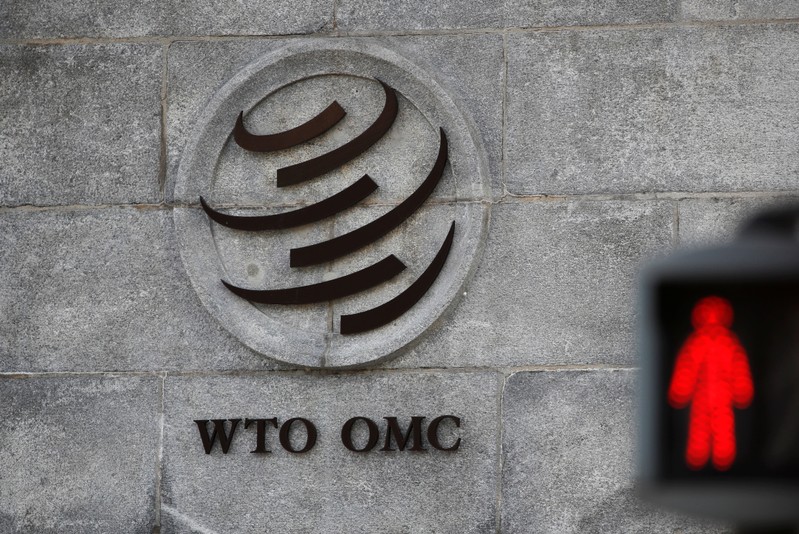
FILE PHOTO: A logo is pictured outside the World Trade Organization (WTO) headquarters next to a red traffic light in Geneva, Switzerland, October 2, 2018. REUTERS/Denis Balibouse/File Photo
April 12, 2019
GENEVA (Reuters) – South Korea won the bulk of its appeal on Thursday in a dispute at the World Trade Organization over import bans and testing requirements it had imposed on Japanese seafood in the wake of the 2011 Fukushima nuclear disaster.
Last year a WTO dispute panel supported Japan, saying South Korea was wrong to keep its initial trade restrictions in place. But Thursday’s ruling overturned several key points of that verdict, saying South Korea’s measures were not overly restrictive and did not unfairly discriminate against Japan.
The appeal looked solely at the panel’s interpretation of the WTO rules, without going into the facts about the levels of contaminants in Japanese food products or what the right level of consumer protection should be.
“The South Korean government highly appreciates the WTO’s ruling and welcomes the decision,” South Korea’s Ministry of Trade, Industry and Energy said in a statement.
Following the ruling, South Korea’s current trade restrictions on Japanese seafood will stay in place, the ministry statement added.
“It is regrettable that Japan’s claims were not accepted,” Takamori Yoshikawa, Minister of Agriculture, Forestry and Fisheries, said in a statement, adding that Japan will continue asking South Korea to abolish trade restrictions through talks.
Japan also plans to ask 23 other countries or areas that have restrictions on Japanese food imports to eliminate or ease such measures, telling them it is ensuring the safety of its shipments, the ministry said.
South Korea widened its initial ban on Japanese fishery imports in 2013 to cover all seafood from eight Japanese prefectures including Fukushima.
Japan launched its trade complaint at the WTO in 2015, arguing that radioactive levels were safe and that a number of other nations, including the United States and Australia, had lifted or eased Fukushima-related restrictions.
South Korea imported 10.9 billion yen ($98 million) worth of Japanese seafood in the year to August 2013 before it broadened its restrictions. Those imports then fell to 8.4 billion yen the following year, according to the Japanese government.
(Reporting by Tom Miles; Additional reporting by Jane Chung in SEOUL and Yuka Obayashi in TOKYO; Editing by Keith Weir, Hugh Lawson and Tom Hogue)

